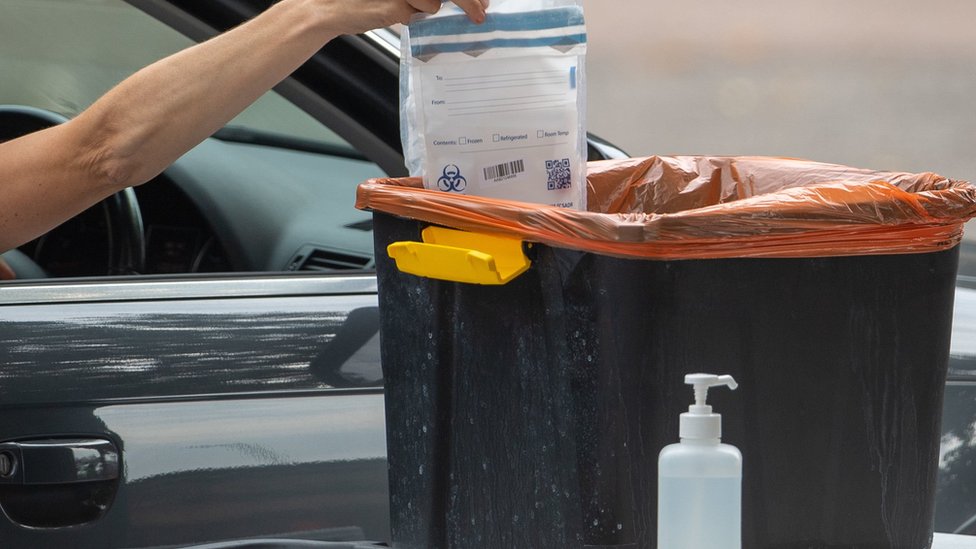
g -Global flag allows us to return every single match in an array instead of just the first match in an array. + - One or more of whatever came directly before it, in this case it’s the capture group instead of a single character. (CAT) - Capture group with the pattern “CAT” inside. I’m not sure what to make of this person’s high “CAT” count, but hopefully it demonstrates the repeatability of the pattern in the parentheses. match() method will return an array with every instance found in the string: const dnaSequence = "GATCGATCATCATCATGGTATAGATGCTGATATGATCGCATCATTCGTAGTCGTGACCATCATCATCATCATCATGATGCGGATGTTATAGTAGTAGTCGGCGATGTAGCTGGATCGACATCATCATCATTGCTAGTCGTCATCATGCTAGTCGTAGCTGCATCATCTAGCATATACTTCGCCGCGTAATTATCGCCCATTT" const catMatches = dnaSequence.match(capturingRegex) console.log(catMatches) // If the pattern is immediately followed by the exact same pattern, it will lengthen the string that gets put into the array: const capturingRegex = /(CAT)+/g Our goal is to return an array of every time the pattern “CAT” is used. Here’s an example where we want to reuse the same pattern in a DNA sequence composed of all A’s T’s C’s and G’s. They don’t match the parentheses literally, only the characters inside them, so these ones don’t need to be escaped with a backslash, instead we’ll use it as a “metacharacter” as it is known. These parentheses are used to group characters together, therefore “capturing” these groups so that they can be reused with backreferences or given a quantifier such as + or *. g - Global flag allows us to return every single match in an array instead of just the first match in an array. + - One or more of whatever comes directly before it (in this case it’s the entire character class above) \) - Escapes a single closing parenthesis literal. The brackets represent a character class, and when combined with a caret following the opening bracket ( [^), it negates the characters inside- more info found here. Any character that is not ( ^) an opening or closing parenthesis ( ( or )). \( - Escapes a single opening parenthesis literal. Quisque." const allMatches = book.match(literalRegex) console.log(allMatches) //Īn explanation of how literalRegex works: Ut efficitur feugiat nunc, nec mattis risus ornare eget. Etiam molestie libero sed lacus (test3) feugiat, hendrerit tempus eros interdum. Sed erat ex, consequat sed sapien vitae, porta pellentesque nulla. In ut tortor eget elit faucibus volutpat eget (test2) vulputate quam. Suspendisse mollis nulla eu ex tempor, et tincidunt risus condimentum. Integer scelerisque neque nisi (test1), at volutpat augue malesuada ut. Sed faucibus turpis nec ultricies tempus. Nam ac purus dignissim, imperdiet dui sed, dignissim nunc. match() method and retrieve all of the parenthetical test phrases used: const book = "Lorem ipsum dolor sit amet, consectetur adipiscing elit. Then using an excerpt of Lorem Ipsum with parentheses plugged into 3 places, we can test our regex with the. The regex might look something like: const literalRegex = /\(+\)/g Let’s say we are given a book’s worth of text, and we want to find every time the author put something in parentheses, including the parentheses themselves.

Since parentheses are also used for capturing and non-capturing groups, we have to escape the opening parenthesis with a backslash. This one is kind of how it sounds, we want to literally match parentheses used in a string. This short post will discuss each kind of parentheses, and will break down examples to further our understanding. However, if you are like me, you may not have heard about non-capturing parentheses in regular expressions. If you have used regex before, you are most likely familiar at least with the literal parentheses, and probably even the capturing ones. To start, the 3 different types of parentheses are literal, capturing, and non-capturing. So, I thought it would be nice to share what I found on my dive of the different usages of parentheses in regular expressions. I quickly realized that I didn’t know as much about parentheses in regex as I thought. My first thoughts were - find a way to use a regular expression!

I recently came across a coding problem which included parentheses in a string, and my goal was to replace the parentheses and everything inside them.


 0 kommentar(er)
0 kommentar(er)
